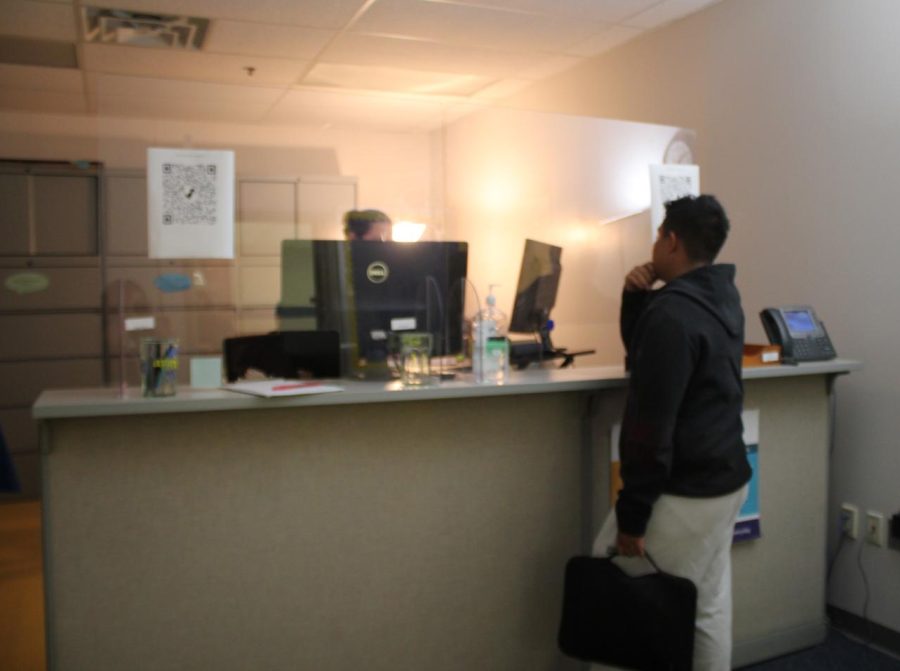The Problem of Tardiness
Routine student tardiness has increased since COVID-closures. Here are some solutions to fix this problem.
Late arriving students must check in at the attendance desk with Ms. Lara. The line to her desk is longest during the first block.
June 6, 2023
I’m a senior at Lewis High School. I’ve been attending school even before the big name change. Despite the positive changes that our new name brought, a negative we still face at our school is the issue of tardiness.
Tardiness has became a bigger problem in the years following the return from COVID closures, as students became lazier and developed bad habits.
The problem with student tardiness is that it affects the learning process for that student and any other students in that class. Tardy students stop the teacher from teaching, and makes it difficult for her/him to continue teaching the class with this interruption to catch up to a student.
Tardy students usually are late because of the lack of punctuality, motivation, and responsibility. I’ve seen that some tardy students arrive late with food or drinks without a care in the world. Some tardy students are just lazy and don’t realize that their tardiness affects their classmates and teachers. These routinely tardy students don’t understand that the start of class is the most important for students as it is when the teacher gives instructions and reminders as to what the class will be doing throughout the class period.
Seniors Danny Rivera Martinez and Paul Signet reflected on solutions to reduce student tardies. They both recommended either shortening the day of school or starting school later on so that students would get more sleep and time to prepare for school.
Who wouldn’t love to catch up on more sleep and have time in the morning for a full breakfast for the energy for the full day of school?
If I had the chance to create my own schedule, I would start the morning with a free period so students have time to catch up or prepare for classes. Some students wait until the last minute to do assignments, so a first block/advisory free of instruction would allow them time for last-minute assignment completion. Furthermore, this period could benefit students by giving them time to mentally prepare themselves for the full day of school.
Would a delayed start time actually fix student tardiness? Rivera Martinez and Signet understandably were skeptical. “Students don’t show up until they need to. It wouldn’t change the tardiness,” Signet said.
Rivera was more critical of habitually tardy students. “Some students just plain don’t like school and arrive late on purpose,” Rivera Martinez said.
In conclusion, the main negative at Lewis High school is the tardiness, which does have solutions like changing the time students arrive or shortening the school day for students. Although these seem like halfway solutions, meaning they would reduce the problem of tardiness in half, these schedule adjustments might very well still decrease the tardiness. Unfortunately, some students dislike school, so they most likely will still be tardy even with a few consequences. A schedule change overall wouldn’t entirely fix this big problem with tardiness at Lewis High School. Change must come from routinely tardy students.

